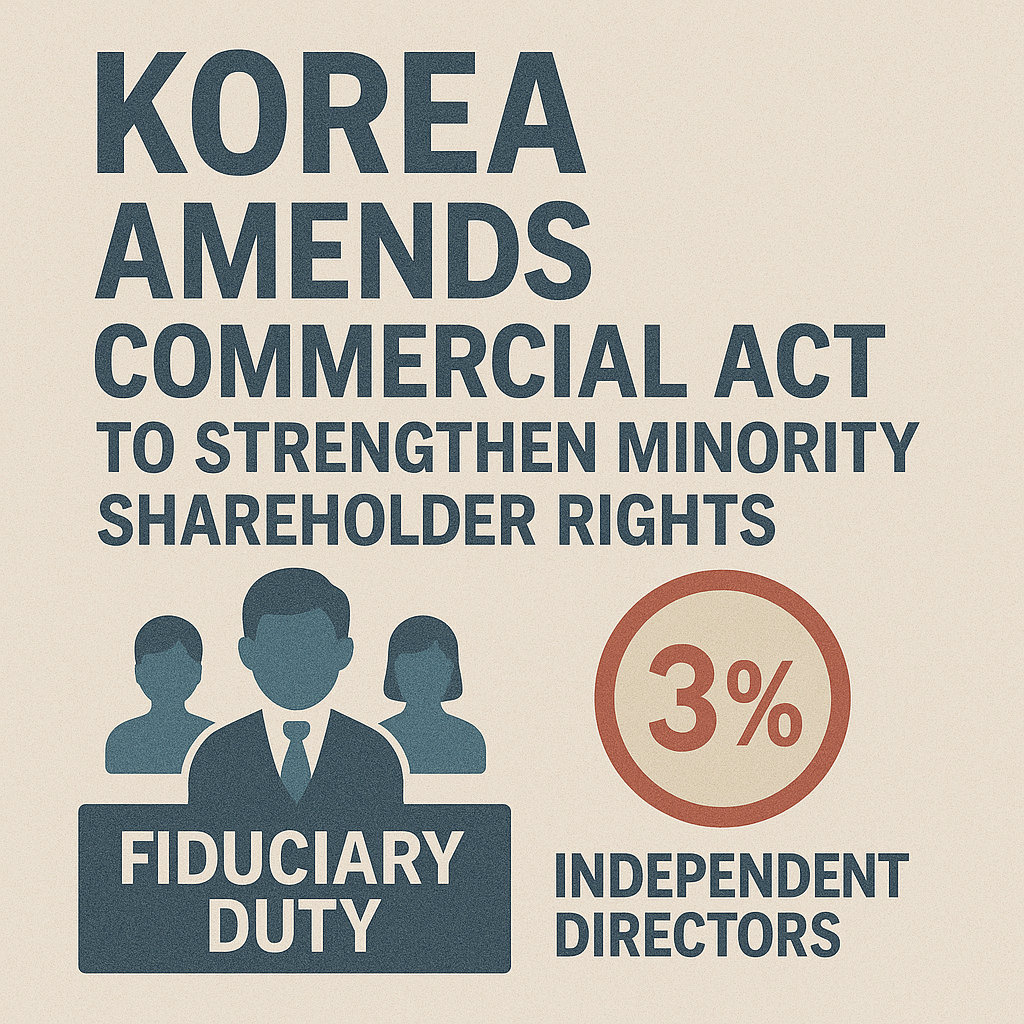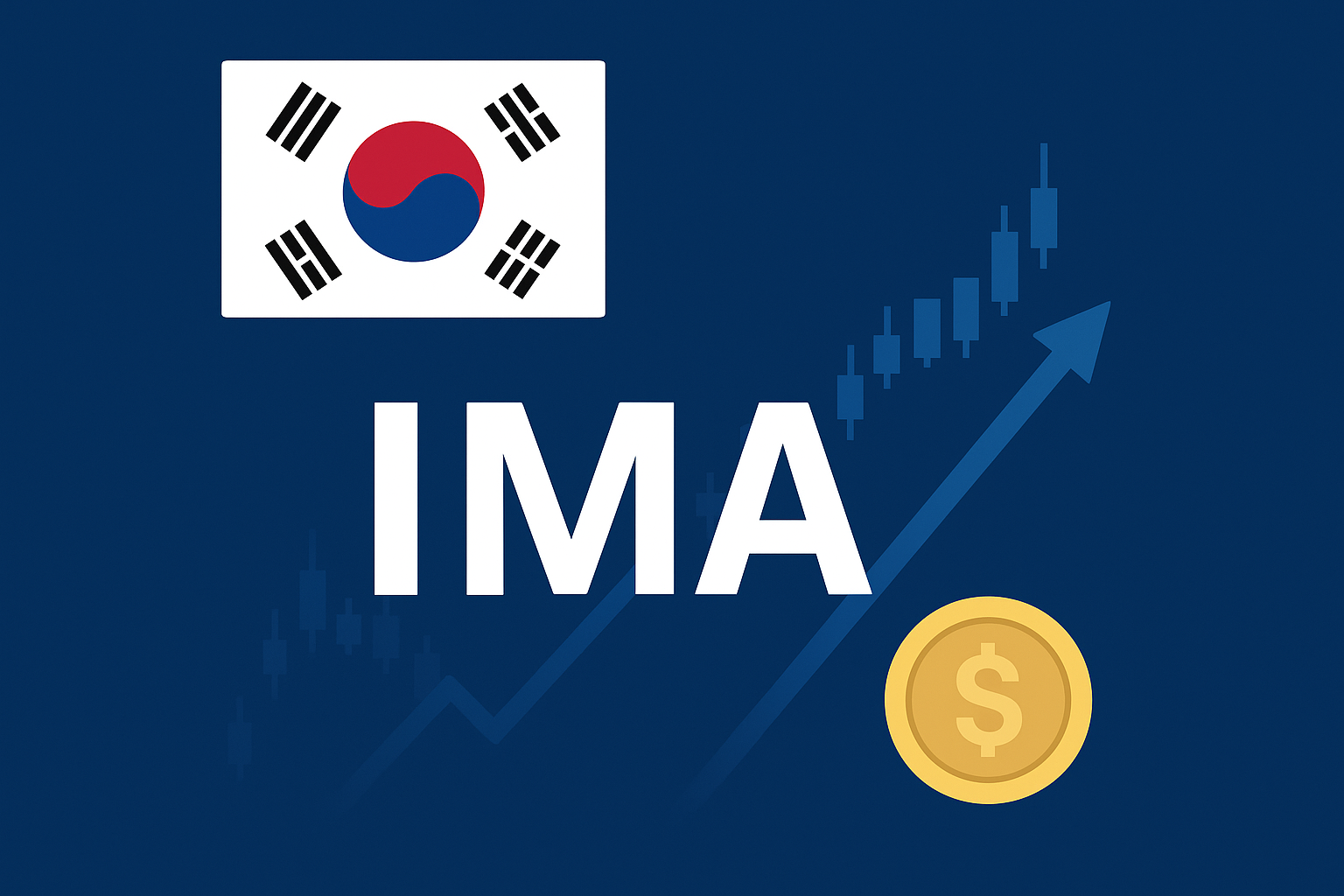
South Korea has passed amendments to its Commercial Act (corporate law) aimed at improving corporate governance and protecting minority shareholders. The revisions expand directors’ fiduciary duty to cover not only the company but also all shareholders, and strengthen the so-called “3% rule” that limits the voting power of controlling shareholders in appointing audit committee members.
Fiduciary Duty Expanded
Under the amended Commercial Act, directors are now explicitly required to safeguard the interests of all shareholders and treat them fairly when performing their duties. This provision takes effect immediately upon promulgation.
Stronger 3% Rule
Previously, the 3% voting cap for controlling shareholders and their affiliates applied only when inside directors were appointed to the audit committee. The amendment extends the cap to outside (independent) directors as well, further reducing majority shareholder influence and enhancing minority shareholder rights.
Electronic Shareholders’ Meetings and Independent Directors
The reform introduces electronic general meetings, with large listed companies required to adopt the system from January 1, 2027. The law also replaces the term “outside director” with “independent director” and increases the mandatory proportion of such directors to strengthen board independence.
Further Reforms Under Discussion
Lawmakers agreed to continue discussions on additional measures, including a cumulative voting system — which would allow minority shareholders to concentrate votes on specific director candidates — and expanding the number of audit committee members elected separately from other board members.
Treasury Share Cancellation Proposal
Separately, the ruling party is pushing for an additional amendment that would require companies to cancel treasury shares within one year of acquisition, with limited exceptions such as employee compensation. Any retention would require shareholder approval, and controlling shareholders’ voting rights would remain capped at 3%. Proponents argue the measure would improve shareholder returns, while critics warn it could weaken corporate defenses against hostile takeovers.
The reforms are expected to enhance transparency in corporate governance and address long-standing concerns that have contributed to the so-called “Korea discount” in the equity market.


